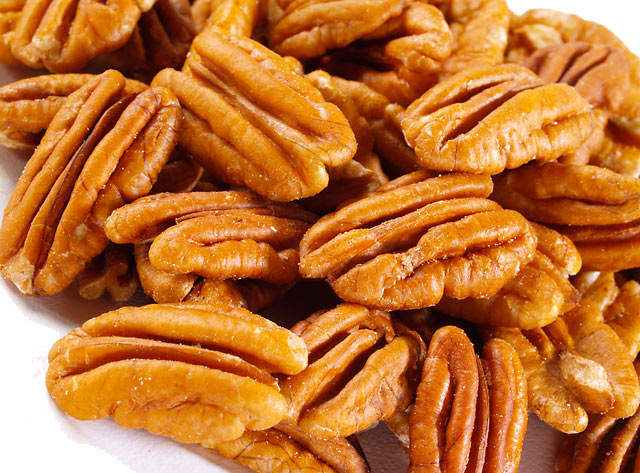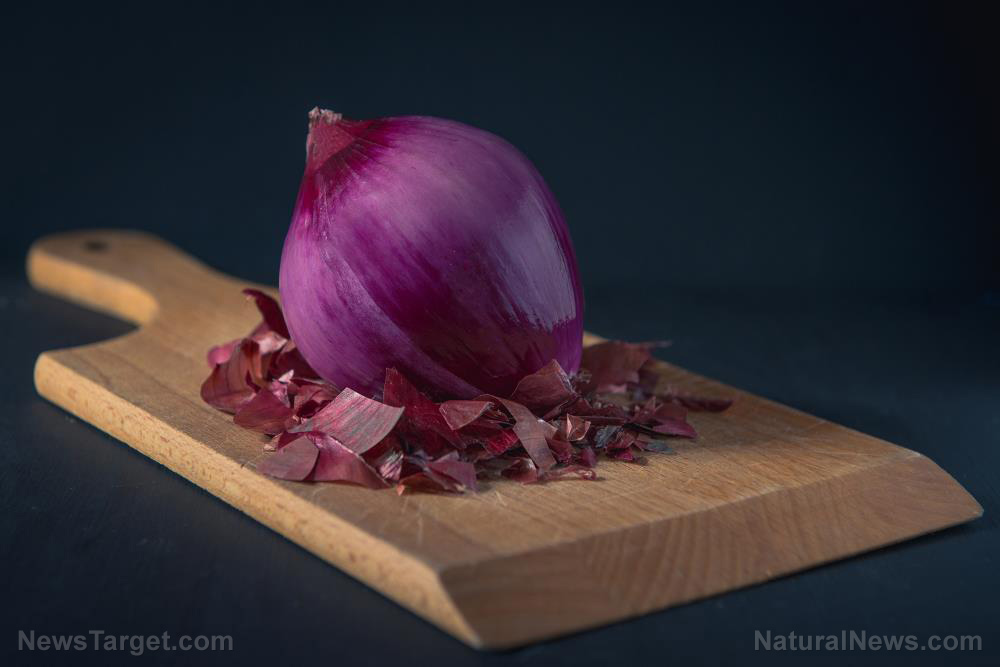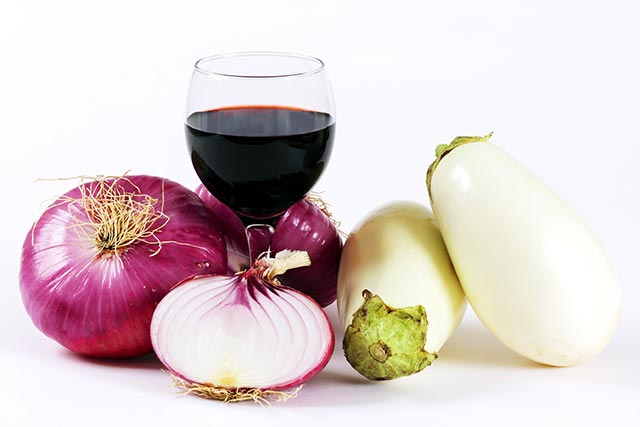Pecans are delicious, nutrient-packed powerhouses that reduce the risk of certain cancers
02/02/2019 / By Zoey Sky

Pecans (Carya illinoinensis) are delicious nuts that have a chock-full of nutrients. They can be eaten as a handy snack, or they can be used as an ingredient for various sweet and savory dishes. But did you know that pecans also offer several health benefits, such as boosting your heart health and immunity?
Why should I eat pecans?
Pecans, while considered “culinary nuts,” are actually drupes. A drupe is a fruit that has a hard shell with a seed inside that is surrounded by the fleshy part of the fruit. Aside from pecans, cherries, peaches, and plums are also considered drupes. However, unlike culinary nuts, these three fruits have a fleshy outside layer.
Here are several reasons to add pecans to your diet.
- Pecans are essential for heart health. Pecans are rich in monounsaturated fatty acids, a type of fat that can help improve total cholesterol levels. Additionally, pecans are full of beta carotene and vitamin E that can protect cells from damage by alleviating damage from chronic inflammation.
- Pecans are full of flavonoids. The Department of Agriculture (USDA) reports that compared to other tree nuts, pecans have more flavonoids, a type of antioxidant found mostly in fruits and vegetables. A diet rich in flavonoids can protect you from chronic diseases like cognitive decline, diabetes, heart disease, and some cancers.
- Pecans are low in sugar. Pecans aren’t just low in sugar, they can also help improve blood sugar levels overall. Eating pecans can slow down the rate of absorption from the bloodstream into peripheral tissues, which can help maintain energy levels and prevent blood sugar spikes. (Related: The health benefits of eating pecans.)
- Pecans are nutritious. One ounce of pecans (or 19 halves) has 200 calories, three grams of fiber, three grams of protein, and 20 grams of mostly unsaturated fats. They might be tiny, but pecans are a filling and nutritious snack that contains antioxidants, minerals, and vitamins.
- Pecans can help boost your immunity. Pecans contain phytonutrients, and these plant-based compounds have potent antioxidant benefits. Additionally, pecans are rich in zinc, an essential mineral that is necessary for immune cell development and function. A diet high in zinc is associated with a lower risk of several diseases, especially those linked to age and lifestyle. Consuming foods that contain ellagic acid, an antioxidant found in pecans, can also help reduce your risk of developing some types of cancer.
- Pecans can help promote weight loss. Nuts are rich in fat, specifically the type found in tree nuts and fruit like olives. But there’s no need to panic if you love pecans. These nuts can promote weight loss and maintenance because they are a hearty of oleic acid, a “good” fat that makes you feel full and boosts heart health. If you’re trying to lose weight, snack on a handful of pecans.
- Pecans can improve brain health. Pecans contain vitamin E, and studies have shown that diets high in this nutrient are associated with lowering risk of Alzheimer’s disease and dementia by at least 25 percent. Pecans can boost brain health because they contain vitamin E and other antioxidants that can help reduce oxidative stress due to inflammation. Consuming vitamin E-rich pecans can protect cells and the tissues of vital organs like the brain.
- Pecans can satisfy cravings for a salty snack. If you’re trying to cut back on potato chips, unsalted pecan nuts are the best sodium-free alternative. You can also use pecans to give any dish a flavor boost and added health benefits.
- Pecans contain key minerals. Pecans are rich in copper and manganese, two minerals that can improve your overall metabolic health. They may also have anti-inflammatory properties and potentially help minimize your risk of developing heart disease. Both copper and manganese can also help prevent high blood pressure.
Learn about other superfoods that can help lower your risk of cancer at FoodCures.news.
Sources include:
Tagged Under: blood sugar levels, brain health, C. illinoinensis, cancer risk reduction, Carya illinoinensis, fatty acids, flavonoids, food as medicine, healing food, Health and Wellness, healthy snacks, men's health, minerals and nutrients, nuts, pecans, phytonutrients, proper diet, proper nutrition, weight loss, women's health



















